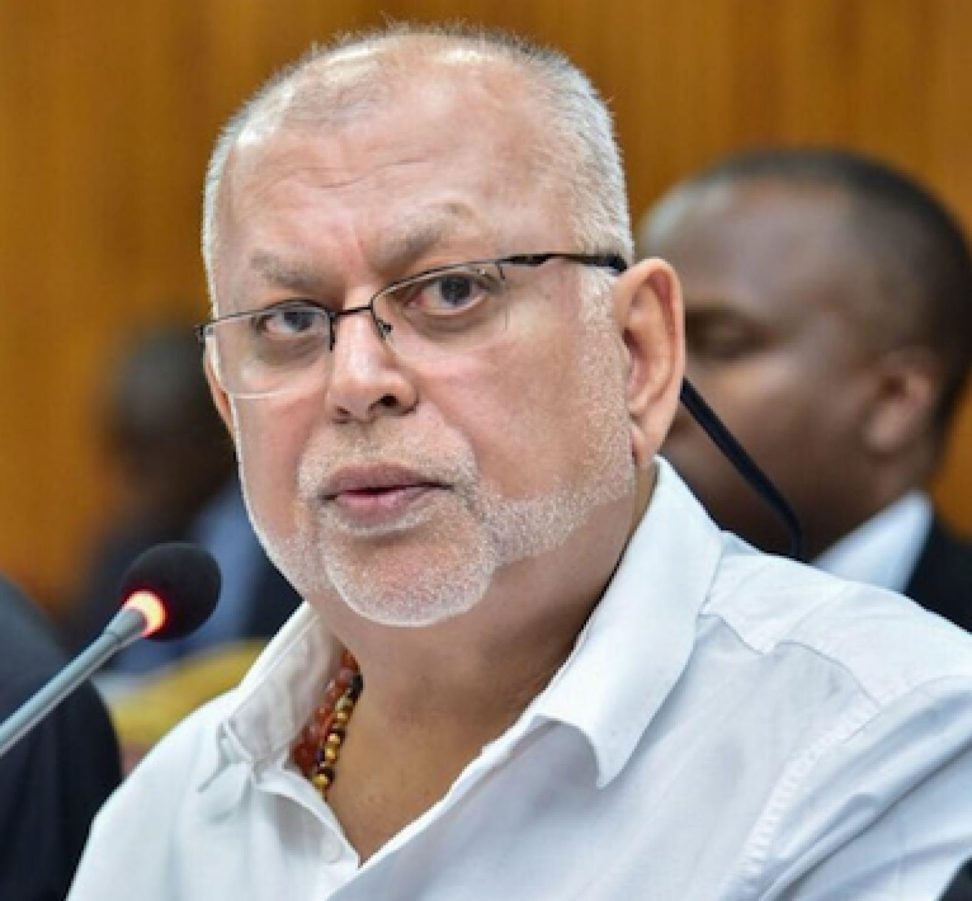More than 100 entrepreneurs will fly in from a score of destinations from Canada, Australia, Europe and the Bahamas. They will land in Kampala between August 2 and 4 to raise a glass the anniversary in the luxury Speke Hotel on the shores of Lake Victoria.
One of the organisers is the Ugandan billionaire Sudhir Ruparelia, who became a refugee overnight as a young teenager in Kampala back in 1972. His parents flew to Britain soon after the decree from President Amin, but the young Ruparelia stayed behind in Kampala with his friends. He was young, he said, and the nightlife was good.
Yet the days grew ever more dangerous. The police would stop Ruparelia and his friends on the streets in the night to ask what they were still doing in Uganda.
Worse befell many other Ugandan Asians. I spoke to a number in Kampala who lived through the painful period and they told me horror stories of relatives plucked from birthday parties and dragged to the airport; of humiliating searches, of women and children, before boarding, looking for hidden jewelry and gold. Most had nothing.
Tales of upheaval running through four generations of many Ugandan families.
As matters got worse in Kampala, Ruparelia prepared for a day when he left the land of his birth and all he knew – November 5 1972.
It was an Alitalia flight to Rome and then on to London Heathrow and uncertainty. He landed at Heathrow at 3 o’clock in the depths of a misty and cold Monday morning. Conservative Edward Heath was Prime Minister; My Ding-a-ling by Chuck Berry was number one; people were listening to music on increasingly popular cassette tapes, on TV was Steptoe and Son and Upstairs and Downstairs. Across the pond, Richard Nixon was entering his final years in power in the White House US president.
“I had never put on a sweater in Africa and here I was; I didn’t have one!. So I was freezing by the time we landed and we see all this mist and dark. You get in the coach and you are so tired already. In the first place, we were in an RAF camp – at four o’ clock in the morning they gave us a room. I didn’t even bother to get undressed, I just went to sleep,” recalls Ruparelia half a century on from the warm of Kampala.
“In the morning, when we got up, the social services people and NGOs came and they gave me an overcoat, one of those woollen ones. It was so heavy that my shoulders could not carry it.”
Ruparelia left the refugee camp, after one day, and went on the hunt for his parents. There was no internet in those days and through the grapevine, he managed to track his parents down living in Scunthorpe on the Lincolnshire coast. He worked a number of jobs – including driving a taxi and making jam doughnuts – before making the foundation of his fortune buying and selling houses in London. He returned to Kampala to become an entrepreneur – starting out selling beer- and the rest of the way to a billion-dollar fortune is history.
Looking back he is ambivalent about the long-term impact of the 1972 expulsion.
“On the positive side, in Uganda, when these Asians left, they created a vacuum, enabling the process whereby indigenous Ugandans the opportunity to cover those gaps I could cover those gaps and so today Uganda and its economy is not controlled by any certain race, or caste or whatever you want to call it. In this country, we have what you could call a mixed economy – everybody has a stake. In this country, if you fail it is not because business is controlled by one community – it is because you are not good investors or you had some bad decision making,” he says.
“It was harsh for a lot of people, including my father and my mum, the lives they had lived had gone. However, lots and lots of Asians, on those days you would have somebody with five children and there is only one breadwinner. So those kinds of people went to Europe, England, America, Canada and you can find there are five and six people working in one family. In the second generation over there, most of the children are all professionals. We have a huge generation of Asians born out of this country who have done extremely well. You will not find a poor Ugandan Asian anywhere in the world.”
![]()




























